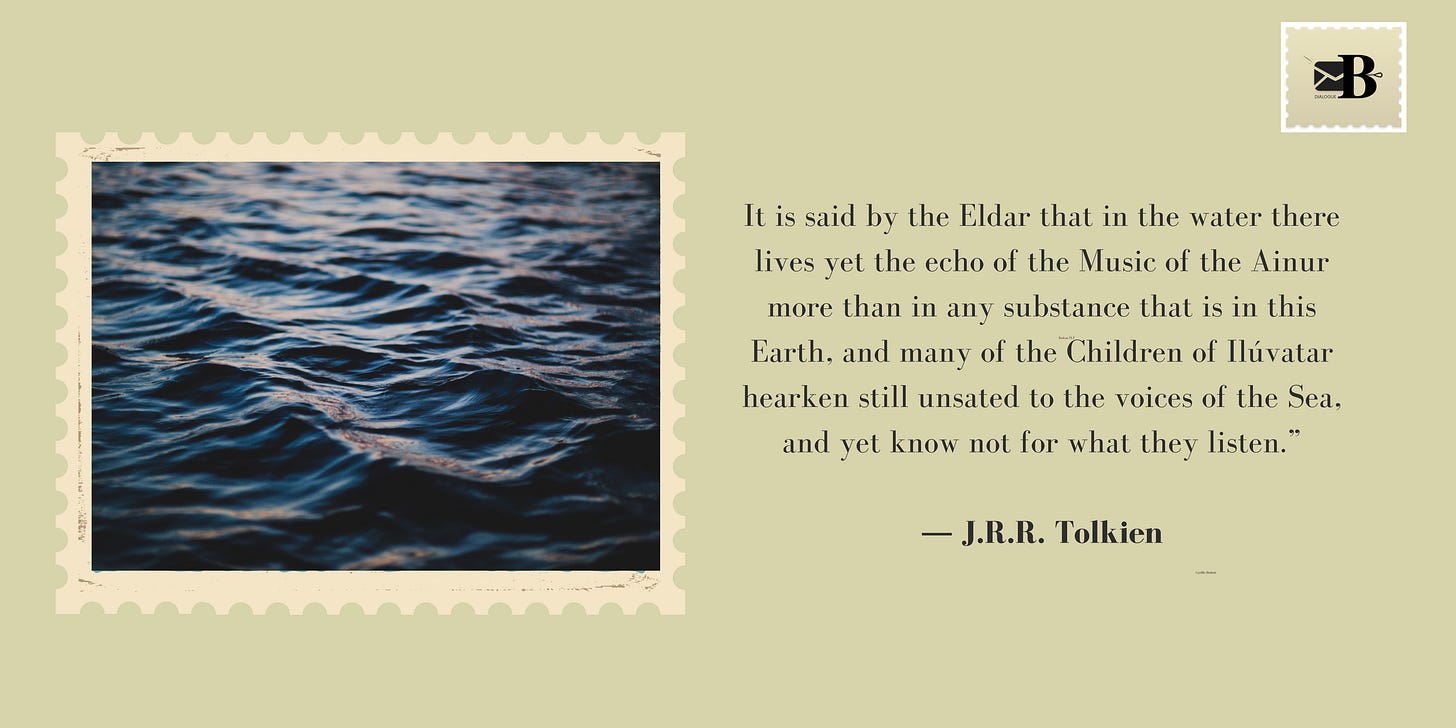Miscellany #13 Water, poems by Philip Larkin and Kalidasa
For whatever we lose (like a you or a me), It's always our self we find in the sea.” ― e.e. cummings,
From the Subscriber
The poem discusses the battle of waves in the context of life. It highlights how in this struggle, even sand turns into stones. The poet questions why people engage in conflicts and why there is so much emphasis on individual identities.
पानी
लहरों की लड़ाई में
रेत हो गए पत्थर तक
बस ना समझी मे लड़ते हैं
सब मिल जाना है गहरे तक
ना जाने क्यूं लड़ते हैं ये
ना जाने मै, तू, मेरे, तेरे का इतना बोल-बाला क्यूं है
अरे बड़ी लहर हो या छोटी हो
वजूद तो सबका पानी ही है
लहरों की लड़ाई में नासमझी, नादानी है
जो समझ गया है जीवन को वो लहर नहीं है पानी है।
~ काश
Water by Philip Larkin
Philip Larkin's poem "Water" explores the concept of constructing a religion and the significance of water within that context. The speaker contemplates the idea of creating a religion and asserts that water would be a fundamental element in their religious practices.
If I were called in
To construct a religion
I should make use of water.
Going to church
Would entail a fording
To dry, different clothes;
My liturgy would employ
Images of sousing,
A furious devout drench,
And I should raise in the east
A glass of water
Where any-angled light
Would congregate endlessl
Ritusamhara by Kalidasa, translated by Abhay K.
Ritusamhara," a poetic work by the renowned ancient Indian poet Kalidasa, beautifully captures the essence of the six seasons in a year. Translated by Abhay K., this short poem from Ritusamhara provides a glimpse into the vivid imagery and evocative descriptions found within the beautiful work of Kalidasa
Fresh water turns murky mixing
with mud, grass and insects, and
rushes down the slope sinuously like a serpent, frogs watching it with great trepidation.


